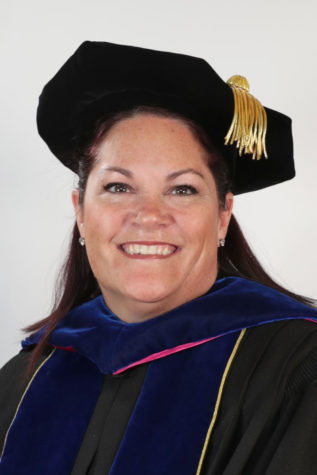Hurst tackles vaping issue
October 23, 2019
In the past few years, Mercyhurst University has become a tobacco and vape free campus, but that doesn’t stop some students from indulging in the habit.
Vaping has become more and more popular in the past few years. Many teens and young adults turn to vaping instead of smoking cigarettes.
Vaping is going to continue to cause health issues in those who participate. So the question is, is Mercyhurst doing enough to teach the dangers of this habit?
An anonymous senior Public Health and Biology double major, is one of those young adults who partakes in this habit. “The buzz you get from hitting it is the best feeling. It’s almost, like a buzz from alcohol,” the student said.
She is extremely aware of the health risks being that she’s a Public Health major. “I don’t do it nearly as much because it makes me nervous, but I also haven’t quit completely,” the student said.
Public Health assistant professor, Lucy Thairu, Ph.D., said she didn’t personally know much on the issue of vaping, particularly as its effects are still yet to be known in the long term.
This, however, does not mean that students are not being educated on the health risks. Kelsey Wegelin, a senior Public Health major, recently studied vaping and the health risks that are involved.
“[People between the ages of] 18 to 35 vape the most,” Wegelin said.
“I find it interesting that many adults vape. I thought it was just a teen thing.”
Throughout her study, Wegelin used PubMed to find data on this ongoing issue.
Using this information, she found the root of the vaping health risks.
“Vaping affects those who participate because the FDA does not regulate the liquid juice that is being put into the e-cigarettes. The fluid is being heated up and going into our lungs which makes our lungs fill up with those fluids. The health risks that go with this include lung disease, bronchitis, pneumonia and collapsed lung,” Wegelin said.
Mercyhurst does intend to bring more awareness to the issue of vaping on campus.
Megan McKenna, director of Residence Life, has been brainstorming ideas on how to bring awareness to this ongoing issue. “Vaping is definitely one of the things that has emerged, especially in the last few months, that we’ve been taking a look at,” McKenna said.
In the recent months, there have been several deaths and reports of pulmonary diseases linked to vaping. California has been taking steps to ban sales of e-cigarettes.
This has sparked concern with staff and students at Mercyhurst. McKenna, along with the Student Life Department, has taken the initiative to better educate themselves on the topic.
Once these deaths and diseases became more frequent, McKenna issued more fliers around campus. McKenna and Laura Zirkle, Ph. D., Director of Student Life, have been working together on this.
“Dr. Zirkle and I said, ‘Okay, lets reissue this poster.” McKenna said. The “No Vaping” poster can be seen around campus, with slogans like “taper the vapor.” Although this is more of a passive approach, McKenna would like to take a more active approach when dealing with vaping in the future.
They are continuing to research ways to spread more awareness, and possibly implement educational programming. Unfortunately, this will not stop all vapers, but can help some quit. McKenna and Zirkle hope that this habit will no longer be harming the students and staff of Mercyhurst and its surroundings.








